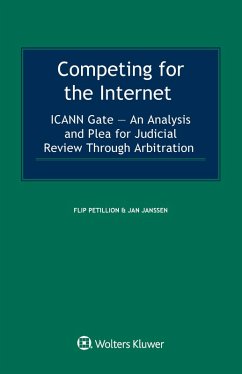The Internet Corporation for Assigned Names and Numbers (ICANN), founded in 1998, is a not-for-profit public-benefit corporation established to ensure a stable and secure global Internet. As the custodian of the Domain Name System (DNS), one of its key responsibilities is the introduction and promotion of competition in Internet-related markets, an aim which ICANN has tried to achieve through the delegation of generic top-level domains (gTLDs). This book investigates how successful ICANN has been in achieving this goal.Over the years, ICANN has been required to decide on a substantial number of complaints from applicants for gTLDs related to capture, arbitrariness, discrimination, and unwarranted restriction of competition. This book is the first detailed study of complaints related to ICANN decisions that have been brought using ICANN's Independent Review Process (IRP). The authors - preeminent expert practitioners in international litigation and arbitration related to Internet governance - take a close look at how ICANN has handled the major issues raised and how ICANN has shaped its own accountability mechanisms. The book also weighs the influence of external accountability on ICANN's decision-making process and considers the implications of third-party decisions (such as IRP decisions) for the ongoing development of the Internet.This authoritative analysis covers: the regulatory framework governing ICANN and the introduction of new gTLDs in a historic perspective; ICANN's accountability framework; all the IRP cases that have been decided to date, with an in-depth analysis of those cases that have become reference decisions in the latest application round; and the 2016 amendments to ICANN's articles of incorporation and bylaws, concentrating on the problems that remain unresolved.This work is a welcome addition to the debate on how to address the shortcomings in ICANN's accountability in the interests of the global Internet community. The authors make concrete proposals and recommendations, suggesting changes to ICANN's regulatory framework in the light of the lessons learned and with a view to preventing similar problems arising in a next round of gTLD applications. This book has the potential to become the Green Book for fundamental changes to ICANN's accountability framework.
Dieser Download kann aus rechtlichen Gründen nur mit Rechnungsadresse in A, B, BG, CY, CZ, D, DK, EW, E, FIN, F, GR, HR, H, IRL, I, LT, L, LR, M, NL, PL, P, R, S, SLO, SK ausgeliefert werden.









